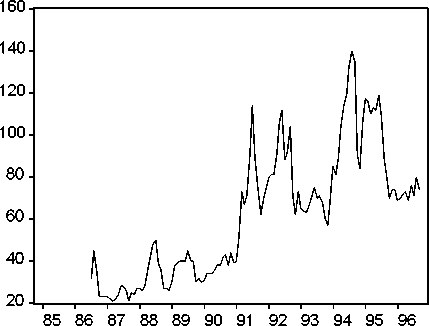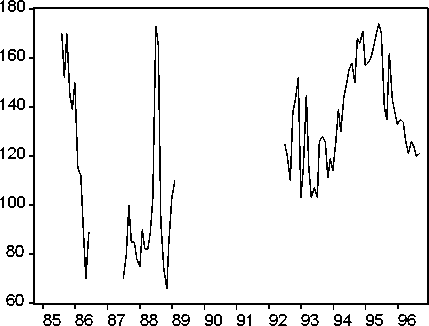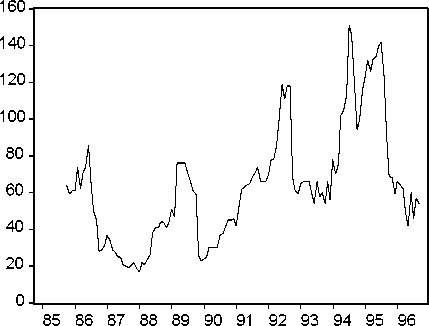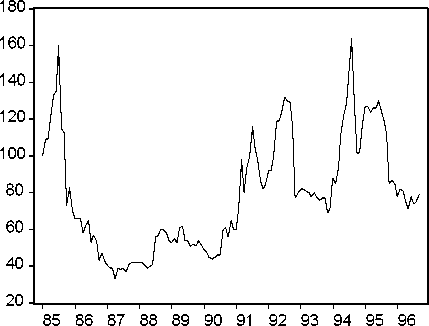300 -r
250-
200-
150-
100-
50-
'1 A'
0 ∣-------------,------------,------------,------------,------------,------------,------------,------------,------------,------------,------------
85 86 87 88 89 90 91 92 93 94 95 96
I----Dire Dawa ∣

I---Shashemene ~∣

I----Mekele ∣
-44-
Figure 1 Maize price trends in nominal terms

I----Jimma ∣

I---Addis Ababa ∣
200
160-
120-
80-
40-



0 ɪ----------,--------,---------,--------,---------,--------,---------,--------,---------,---------,--------1-
85 86 87 88 89 90 91 92 93 94 95 96
I----Bako~~∣
More intriguing information
1. Self-Help Groups and Income Generation in the Informal Settlements of Nairobi2. The name is absent
3. Insurance within the firm
4. Computational Batik Motif Generation Innovation of Traditi onal Heritage by Fracta l Computation
5. Special and Differential Treatment in the WTO Agricultural Negotiations
6. Strategic monetary policy in a monetary union with non-atomistic wage setters
7. The Dynamic Cost of the Draft
8. Higher education funding reforms in England: the distributional effects and the shifting balance of costs
9. The name is absent
10. Wettbewerbs- und Industriepolitik - EU-Integration als Dritter Weg?